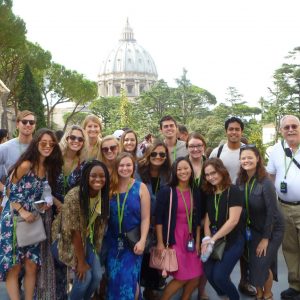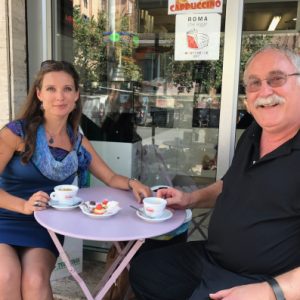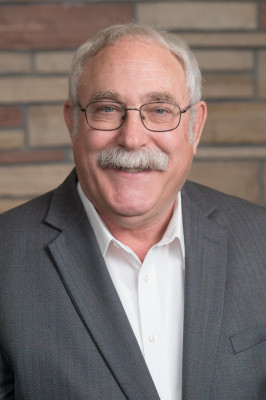
For 42 years, Carl Burgchardt has dedicated himself to inspiring students through his teaching expertise in rhetoric, public speaking, and film studies in the Department of Communication Studies at Colorado State University. His dedication stemmed from a profound passion for empowering students to reach their potential. The ability to witness their growth brought him immense fulfillment.
“The pride I feel when students surpass what they thought they could do, when I see them learning and achieving new heights – that’s the real reward,” said Burgchardt. “I am proud of everything my students achieve.”
Throughout his career, Burgchardt has left an incredible mark on the Department of Communication Studies. He introduced six new courses at the undergraduate level and two courses at the graduate level, published numerous articles, textbooks, and chapters, and spent 14 years as the Director of the Basic Public Speaking program.
“I can do good by teaching people how to be effective public speakers. Public speaking is vitally important, and I’ve always enjoyed that as a professor. I taught public speaking my whole career, one way or another,” said Burgchardt.
Additionally, Burgchardt made vital contributions to the honors program, further enriching the educational experience for students. His legacy also extends beyond the classroom as he co-founded the transformative Communication in Rome program with Julia Khrebtan Hörhager.
After over four decades of exceptional tenure distinguished by outstanding teaching, advising, service, and scholarly research, Burgchardt retires this month, leaving an incredible legacy behind.
Forging a path of academic excellence
Burgchardt received his PhD in Communication Arts from the University of Wisconsin in 1982. An early interest in performance sparked Burgchardt’s journey, kindling a passion for debate and public speaking that eventually led him to a career as a professor. He joined Colorado State as an assistant professor and fell in love with the community.
Professor Karrin Vasby Anderson’s experience with Burgchardt exemplifies his transformative impact within the Department of Communication Studies. As one of his former students, she has had the privilege of collaborating with her former teacher after joining the faculty.
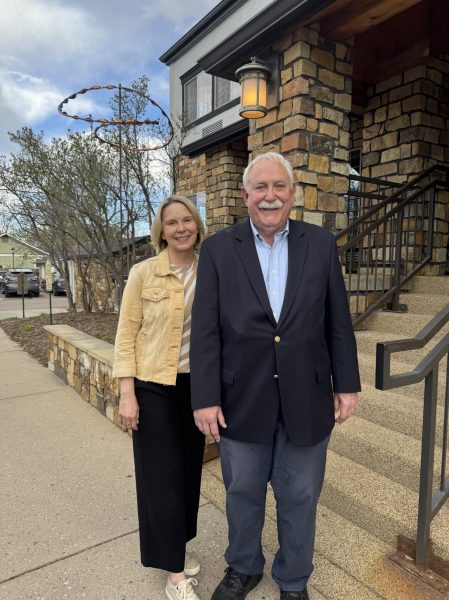
“Dr. Burgchardt is passionate about understanding rhetoric as a force for change in society. As my master’s thesis advisor and director of the public speaking course, Dr. Burgchardt demonstrated the ways in which rhetorical studies are meaningful: in history, politics, culture, and everyday life,” said Anderson.
“Because of Dr. Burgchardt, I learned very early in my career the connections between communication practices and democratic health. That sensibility has shaped my own teaching and research for thirty years, and I hope I am able to pass it on to my students as he so capably did to me.”
Due to his exemplary impact, Burgchardt has received awards throughout the years including the Willard O. Eddy Teacher Award from Colorado State University and Outstanding Professor from the National Speakers Association.
While respected for his accomplishments, Burgchardt’s self-deprecating humor endears him to all. Burghardt’s alter ego “Cral Brickheart” wrote poetry about punctuation and performed them to students. His infamous poem about ellipses states:
When you use ellipses,
Please do not misplace . . .
It’s space, dot, space, dot, space, dot, space.
Burgchardt’s unique ability to blend scholarly excellence with his passions has left an indelible impression on generations of communication studies students and even ignited further interests, including the study of film.
A love of “Cinema Italiano”
In addition to his expertise in public speaking and rhetoric, Burgchardt developed an unexpected interest in film criticism. Despite his informal introduction to film, Burgchardt threw himself wholeheartedly into the scholarly study of the cinematic arts exploring methods and theory.
Burgchardt’s curiosity about film eventually led him to Italy, where he had the opportunity to teach at John Cabot University. He introduced a class entitled Cinematic Rome. During this experience, he cultivated a love for Italian film, inspiring him to co-create the Communication in Rome program at Colorado State, which he built with Julia Khrebtan Hörhager in 2015. He spent six summers in Rome with groups of hardworking and enthusiastic students.
“Carl’s uncompromising cinematic and rhetorical vision, his passion for teaching and learning, and his deep appreciation of the Italian culture made our summers in Rome magical,” said Khrebtan Hörhager. “They were true journeys of discovery and transformation for our students.”
That transformative presence was driven by Burgchardt’s passion for Italian film. Enthralled by Federico Fellini and the Italian culture, he further immersed himself in learning and growth by taking Italian language courses at CSU.
Burgchardt’s devotion to teaching film studies and facilitating cross-cultural understanding through film left an incredible impact, providing students with transformative experiences and diverse perspectives. His lifelong love of learning ensured his passions radiated outward, giving students their own opportunity to explore the world’s culture and stories.
Embracing the future of communication studies
As Burgchardt’s tenure as a professor comes to an end, following years of innovative scholarship and leadership within the communication studies field, he continues to believe in the power of communication.
A pioneer of the field, Burgchardt has witnessed communication studies’ transformation and eagerly anticipates its future growth.
“Rather than looking at whether communication is effective and why, the field has a new aim: raising concerns for social problems that expose how communication can oppress and marginalize” said Burgchardt.
“Communication studies has evolved into looking at completely nonverbal things and trying to understand how spaces and places can influence people. There is also a very sharp emphasis on identity. Queer criticism and theory are becoming prominent, and I think that is exciting because it leads to the analysis of how communication can advocate for increased rights.”
In providing parting advice to future scholars, Burgchardt said, “If you are going to do this job, you have to be committed to it and you must feel called to it.”
“In this job, you are teaching, you are a role model, and you are involved in all different areas of university life. It’s a special kind of job and you have to love what you do.”
What’s next?
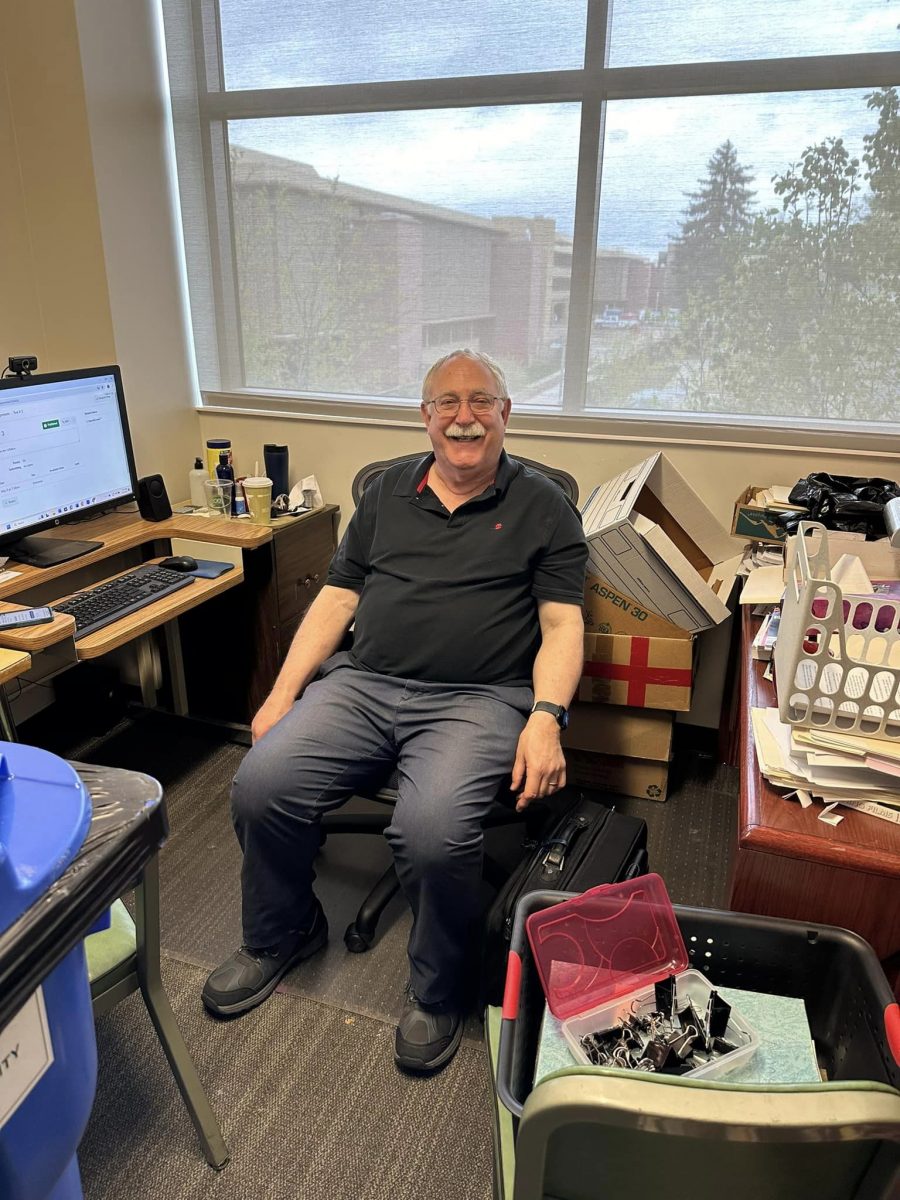
As he and his colleagues in the department reflect, Burgchardt will be fondly remembered by students and faculty alike for his everlasting legacy.
“Burgchardt is a team player who cares about his students and colleagues. He respects other people’s opinions, celebrates everyone’s accomplishments, and is a stalwart Ram through and through,” said Anderson.
Burgchardt leaves the department with many cherished memories – from being part of groundbreaking departmental milestones like creating a PhD program in Communication Studies, to the warmth of countless celebrations alongside his colleagues and students. As he prepares to embark on his next chapter, he treasures those memorable experiences.
As for what’s next, Burgchardt is stepping into the role of grandfather for the first time and looks forward to the enriching experience. He hopes to return to Rome, as well as the Piedmont region of Italy and exploring within the United States. Burgchardt’s legacy will also continue as his daughter is a professor of Communication at Augusta College. With a life full of accomplishments and new adventures on the horizon, Burgchardt’s journey promises to be an inspiring one.
